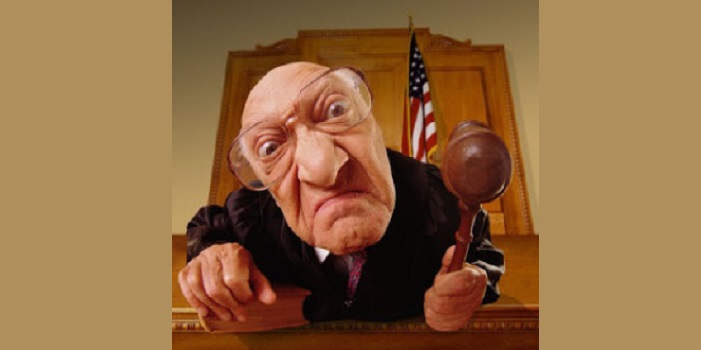When it comes to constitutional issues, most lawyers in America suffer from what I call J.D. impairment. 
I don’t mean to disparage lawyers. But by and large, they don’t have a clue about the actual meaning of the Constitution.
Of course, most Americans don’t have a clue either. What makes this particularly problematic when it come to lawyers is the fact that based on their legal education, they fancy themselves constitutional experts.
Indeed, lawyers know a lot about constitutional law. Far more than I do, for sure. But a vast gulf exists between knowing constitutional law and knowing the Constitution.
Apart from a few references to the Philadelphia Convention, and perhaps a brush past the Federalist Papers, law schools don’t typically teach about the drafting and ratification of the Constitution, and they certainly don’t focus any attention whatsoever on the state ratifying conventions. Constitutional law generally starts with Marbury v. Madison and moves along from there. Law school teaches precedent. In fact, lawyers come to view Supreme Court precedent as the sacred foundation of the American legal system – not the intended meaning of the Constitution itself.
I run into this all the time. I will assert that a particular action lies outside of federal power and a lawyer will quote some court case to prove me wrong. No matter how much evidence I provide demonstrating that the ratifiers didn’t understand the Constitution in that way, lawyers will almost always cling to court precedent to justify their position.
In American legal circles precedent trumps the people who actually agreed to the Constitution in the first place. But court precedent was never intended to dictate the meaning of the Constitution. Its true meaning and intent remains fixed, anchored in the understanding of the people who ratified it.
To read the Constitution through this framework simply means we seek to understand what the people – through their ratifying conventions – believed they were agreeing to. Otherwise, meaning becomes a moving target, subject to the changes in language and societal assumptions over time, as conceived by judges.
In a letter to Henry Lee dated June 1824, Madison affirms this view of constitutional interpretation.
I entirely concur in the propriety of resorting to the sense in which the Constitution was accepted and ratified by the nation. In that sense alone it is the legitimate Constitution. And if that be not the guide in expounding it, there can be no security for a consistent and stable, more than for a faithful exercise of its powers. If the meaning of the text be sought in the changeable meaning of the words composing it, it is evident that the shape and attributes of the Government must partake of the changes to which the words and phrases of all living languages are constantly subject. What a metamorphosis would be produced in the code of law if all its ancient phraseology were to be taken in its modern sense!
Thomas Jefferson made the same assertion.
On every question of construction let us carry ourselves back to the time when the Constitution was adopted, recollect the spirit manifested in the debates, and instead of trying what meaning may be squeezed out of the text, or intended against it, conform to the probable one in which it was passed.
So, if precedent contradicts original intent, judges should reject the precedent. Of course, those running in modern legal circles consider this tantamount to blasphemy. But the position taken by most legal minds in America turns the Republic into an oligarchy ruled over by nine politically connected lawyers. Thomas Jefferson found this idea absurd.
To consider the judges as the ultimate arbiters of all constitutional questions is a very dangerous doctrine indeed, and one which would place us under the despotism of an oligarchy. Our judges are as honest as other men and not more so. They have with others the same passions for party, for power, and the privilege of their corps…and their power is more dangerous as they are in office for life and not responsible, as the other functionaries are, to the elective control. The Constitution has erected no such tribunal, knowing that to whatever hands confided, with the corruption of time and party, its members would become despots.
Keep this in mind the next time a lawyer insists the Constitution means this or that because, “The Supreme Court says so.” You are likely encountering a case of J.D. impairment.




